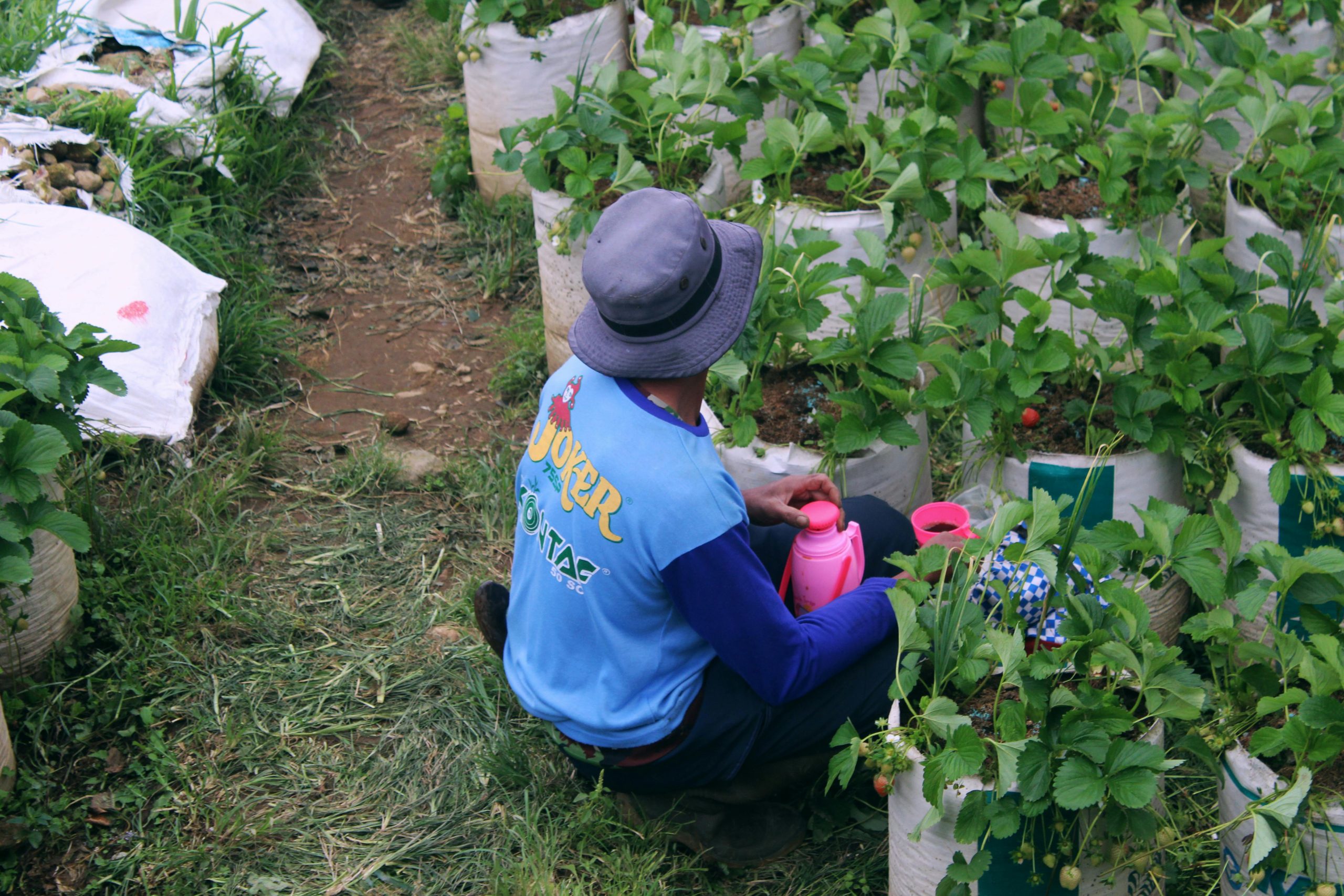What’s the Best Method for Waterproofing a Terrace Garden?

If you have a terrace or roof garden, it’s crucial to understand the necessity of waterproofing. This process helps to prevent structural damage caused by water infiltration. It ensures the surface remains safe, dry, and usable regardless of the weather conditions. This article will explore the best methods for waterproofing a terrace garden and guide you on how to protect your outdoor space effectively.
Understanding the Importance of Waterproofing
Before delving into the specifics of waterproofing a terrace garden, it’s important to comprehend why this process is critical. Here, we’ll discuss the relevance of waterproofing and how it can save you from potential damage and hefty repair costs.
Cela peut vous intéresser : How to Choose the Most Durable Materials for Outdoor Furniture in a Coastal Climate?
Waterproofing is the process of making a surface or object impervious to water. It involves applying a waterproof or water-resistant coating to protect against the ingress of water. This is particularly important in the context of a terrace garden or roof.
Terraces and roof gardens are constantly exposed to the elements, including rain, snow, and humidity. Without adequate waterproofing, water can seep into the building’s structure, causing significant structural damage over time. This isn’t merely about aesthetics or convenience. Water infiltration can weaken the structure of the building, posing a safety risk over the long term.
Sujet a lire : How Can You Design a Garden that Thrives in Shaded Areas?
Moreover, an effectively waterproofed terrace garden provides an enjoyable, all-weather outdoor space. Whether it’s for relaxation, gardening or social activities, a waterproof terrace garden ensures that the area is dry and safe, regardless of the weather.
Choosing the Right Waterproofing System
There are a variety of waterproofing methods and systems available for you to choose from. This section will discuss the pros and cons of different systems, enabling you to make an informed decision.
Membrane Waterproofing System
One of the most common systems used in terrace garden waterproofing is the membrane system. This involves applying a thin layer of waterproof material, known as a membrane, over the surface of the terrace. The membrane acts like a protective skin, preventing water from penetrating the surface.
Membrane waterproofing can be bituminous, which is made from asphalt and is highly effective against water. It provides a smooth finish and is resistant to UV rays and harsh weather conditions. There are also liquid membrane options, which are fully bonded, thereby reducing the risk of leaks.
Concrete Waterproofing System
Another prevalent method is the concrete waterproofing system. This involves applying a waterproof coating to the concrete surface of the terrace. The coating penetrates the concrete, sealing any pores and preventing the ingress of water.
Concrete waterproofing is a durable method that can withstand heavy foot traffic and harsh weather conditions. However, it requires regular maintenance to ensure its efficacy.
Drainage System
While not a waterproofing method, the drainage system is a vital part of preventing water damage. This involves installing channels and drains to direct water away from the terrace. A well-installed drainage system can significantly reduce the risk of water damage, especially when used in conjunction with other waterproofing methods.
Preparing for Waterproofing
Before applying a waterproofing system to your terrace garden, certain preparatory steps are essential. We’ll outline the necessary steps to take before starting the waterproofing process.
Firstly, the terrace surface needs to be thoroughly cleaned to remove any dust, dirt, or debris. This ensures a smooth application of the waterproofing layer and prevents any weaknesses or gaps in the coating.
Once the terrace is clean, it’s necessary to repair any existing cracks or damage. Any pre-existing damage on the surface can compromise the effectiveness of the waterproofing system and lead to future issues.
Lastly, installation of a proper drainage system, as discussed earlier, is a vital step in preparing your terrace. Good drainage prevents water from pooling on the surface, a common cause of water damage.
Applying the Waterproofing
After preparing your terrace, the next step is to apply your chosen waterproofing system. Here, we’ll talk about how to correctly apply membrane and concrete waterproofing systems.
Membrane Application
For membrane waterproofing, start by applying a primer to the surface. This helps the membrane adhere better to the terrace floor. Once the primer has dried, the membrane is rolled on. It’s crucial to ensure that the membrane is applied evenly, with no bubbles or wrinkles, as these can lead to water seepage.
Once the membrane is applied, it should be allowed to dry completely before any further work is done on the terrace, like placing tiles or soil for the garden. This ensures that the membrane is fully bonded and will provide effective waterproofing.
Concrete Coating Application
For concrete waterproofing, a waterproof cement mix is applied to the surface of the terrace. Similar to membrane application, it’s essential to ensure an even coating and no gaps or weaknesses. Once applied, the coating needs to dry completely before any further work is done on the terrace.
Overall, choosing the right waterproofing system for your terrace garden depends on various factors, including the type of terrace you have, your budget, and your specific needs. Regardless of the method chosen, proper preparation and application are key to ensuring effective waterproofing. Remember, a well-maintained, waterproofed terrace garden can provide years of enjoyment, enhancing the quality of life for those using it.
Advanced Waterproofing Solutions
There are various advanced waterproofing systems available for terrace gardens, each offering unique benefits. In this section, we’ll explore these modern solutions and help you decide if they’re right for your needs.
Polymer Coating
Polymer coating is a popular choice among advanced waterproofing solutions. It involves applying a polymer-based liquid membrane onto the terrace surface. The liquid quickly dries and forms a seamless, flexible, and robust barrier against water ingress.
This method is often chosen due to its durability and resistance to weathering. Polymer coating is also resistant to UV rays, making it a long-lasting solution for terrace garden waterproofing. It also provides an aesthetic finish, enhancing the overall look of your terrace garden.
Sheet Membranes
Sheet membranes are another advanced waterproofing option. These are large sheets of waterproofing material that are rolled out onto the terrace surface and adhered using a special adhesive.
Sheet membranes are incredibly durable and resistant to puncture. They offer a high level of protection against water damage, making them a reliable choice for terrace gardens. However, they require professional installation for optimum effectiveness.
Protection Board
A protection board is a type of waterproofing system that provides a physical barrier against water ingress. These boards are installed over the waterproofing layer to protect it from damage during construction or gardening activities.
Protection boards are particularly beneficial when installing a garden on your terrace, as they protect the waterproofing layer from being punctured by gardening tools or plant roots.
These advanced waterproofing solutions offer enhanced protection for your terrace garden. However, keep in mind that they might require a higher initial investment compared to traditional methods. It’s important to consider this against the potential costs of water damage and future repairs.
Conclusion: Preserving Your Terrace Garden
Waterproofing a terrace garden is not a mere luxury, but a necessity. The right waterproofing system can protect your building structure from water damage, ensure safety, and prolong the garden’s lifespan. From traditional membrane and concrete systems to advanced polymer coating, sheet membranes, and protection boards, you have a wide range of options to choose from depending on your specific needs and budget.
Preparation is key in this process. Cleaning your terrace surface, repairing existing damage, and installing a proper drainage system are crucial steps before applying your chosen waterproofing method. And remember, regardless of the system you choose, ensure it’s applied correctly for maximum efficacy.
Investing in a quality waterproofing system for your terrace garden doesn’t just safeguard your property; it also creates a pleasant and safe outdoor space that can be enjoyed in any weather. So take the time to explore your options, and make a choice that ensures your terrace garden remains a beautiful and functional space for years to come.
